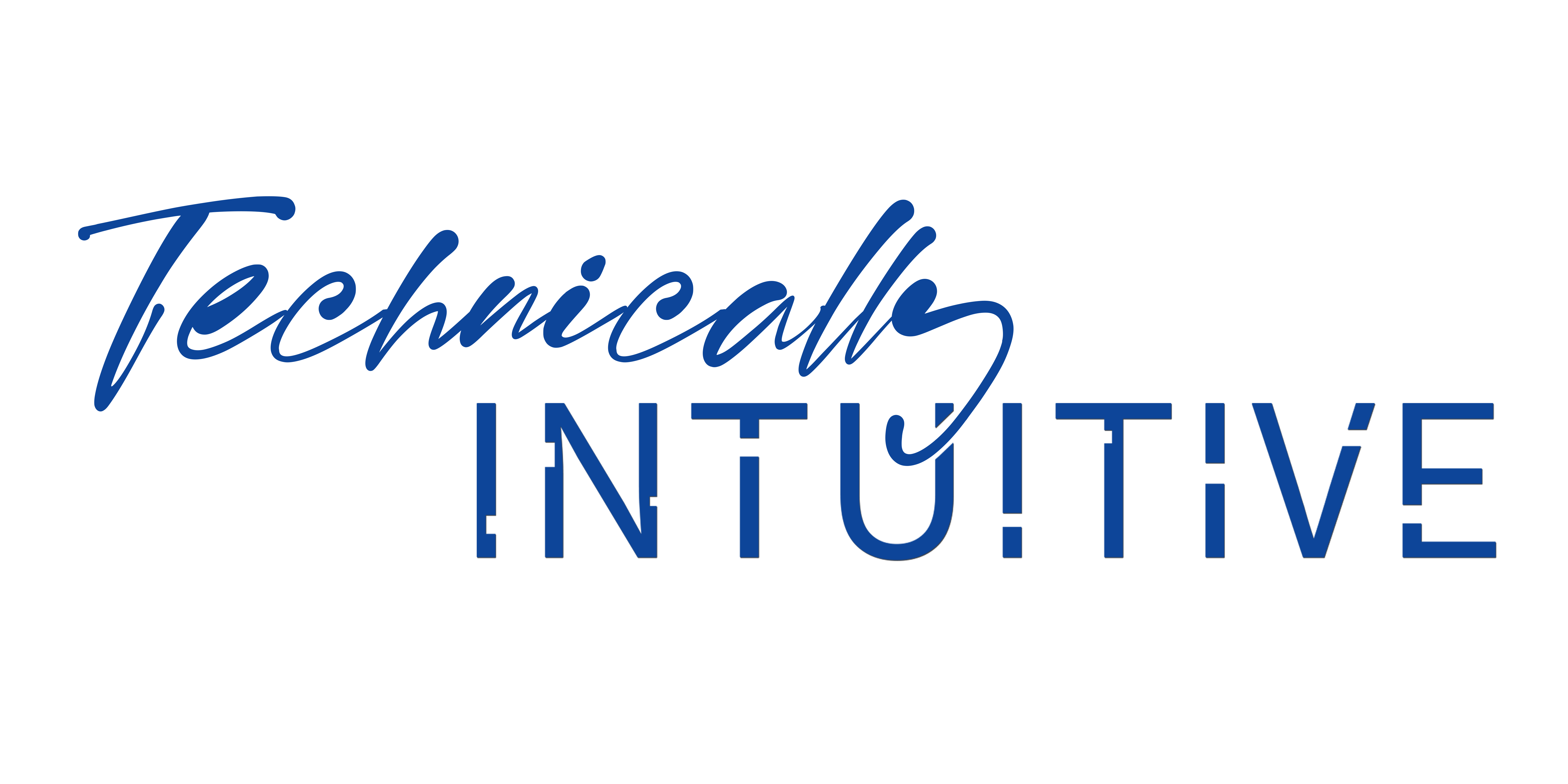Featuring Dr. Aikyna Finch, Faculty, Wallace E. Boston School of Business and
Folasade Ayegbusi, accountant, speaker
Starting and operating a business requires many skills, but none more important than accounting. In this episode, APU’s Dr. Aikyna Finch talks to Folasade Ayegbusi, the “accountability account” about some of the common mistakes small-business owners make. Learn why it’s so important to identify strengths, opportunities and weaknesses so business owners know where to invest in learning new skills or hiring experts. Also learn about her biggest tax-saving strategies and why it’s just as important to track your income as it is your expenses.
Listen to the Episode:
Subscribe to The Everyday Scholar
Apple Podcasts | Spotify | Google Podcasts
Read the Transcript:
Dr. Aikyna Finch: Greetings, everyone. Welcome to the podcast. I am Dr. Aikyna Finch and today we’re going to be speaking with Folasade Ayegbusi. Folasade Ayegbusi is an enrolled agent, accountant, ex-insurance broker, speaker and business-growth strategist. She has helped entrepreneurs and small-business owners save over $27 million in lost revenue, tax assessments, penalties and interest. This financial powerhouse partners with clients to identify financial challenges, design optimum solutions, and oversee implementation of new systems that simplifies financial processes for success. Greetings, Folasade. How are you today?
Folasade Ayegbusi: Good morning, Dr. Finch. How are you?
Dr. Aikyna Finch: I am fabulous. Thank you for asking. I am super excited to talk to you about accounting 101 for businesses, what every business owner should know. Why are you passionate about this topic?
Folasade Ayegbusi Ex-President Obama said it. He said a powerful message before. He said, “Small businesses are the backbone of our economy.” I’ve always believed that, but to hear the President say that at that point, I just knew that small business owners, if they make the income, we’re able to really drive this economy forward and make positive impact.
Well, way before then I was always passionate because I knew what having a small business in your family or in your community can do economically so I’ve just grew up with that passion, and being raised from my dad having his own business and the impact that he was making, I can see that if we just had more businesses, more successful small businesses, we can change the trajectory of these economies.
Dr. Aikyna Finch: That’s beautiful. Can you tell me a few things that you see all the time that business owners don’t know that they don’t know?
Folasade Ayegbusi: Well, that’s a very good question. The first thing I notice that small businesses don’t know is the importance of doing their accounting. Accounting is the language of business, and if you’re not doing your accounting then that means you really don’t know what’s going on with your business.
When I speak to small business owners, they’re not able to tell me how much money they brought in last year; they’re not able to tell me what their expenses were; they’re not able to tell me the core things that every business owner needs to know to really scale and grow and make money.
With that being said, small business owners don’t really know that, if you utilize the financial data to understand everything about your business and connect the dots to make the strategic decisions that you need to make. It’s very important that small business owners know the importance of accounting and start to really utilize it.
Dr. Aikyna Finch: You were mentioning starting to utilize the accounting because some people, they’ll say, “Ooh, this is a good idea. Somebody liked my T-shirt so I’m going to start making this T-shirt in bulk. I’m just going to go get a website and get a name and start posting it on Facebook.” Tell me what’s wrong with that.
Folasade Ayegbusi: Well, automatically that’s just jumping right in not even knowing what some of your initial costs may be. That’s another thing I notice with small business owners, they don’t really sit down and pull the financial pieces together to really know what startup cost they would need, how much money would they need the remainder of the year to keep the business afloat, how much it’s going to cost to get the product in bulk, and may not even know the core business jargon such as minimum order quantity, MOQs, and things before they just jump out there. Your accounting basically starts the moment that you start to spend any money or decide to start a business.
Dr. Aikyna Finch: Now you said that the accounting starts as soon as you spend the first piece of money. With that being said, what are some of the things that we should be spending our money on and how do we know we’re spending our money on the right thing?
Folasade Ayegbusi: Oh, that’s amazing. That goes to my concept of soul strengths, opportunities and weaknesses. Every business owner needs to first identify when they’re initially starting their businesses what are their strengths, opportunities and weaknesses. We kind of already know what our threats are, competition, government, things like that. Once you identify your strengths, opportunities and weaknesses, at that point then you know exactly what areas you need to invest in.
For example, if one of your weaknesses is creating content then your first training may be marketing training so you can learn how to market your product.
I think once we utilize my concept of soul strength, opportunity, weakness, we’ll be able to identify the areas that we should invest in first. To be able to make money, you need to know how to market and sell.
So, once you identify that weakness, you know, okay, you may need to invest into maybe a social media manager or a content creator or take a coaching course so you can learn how to create content or coaching course so you can learn how to market your company. Once you identify your strengths and those areas, then that means you can go and push. You may not have to necessarily invest into individuals to help you, but maybe into systems and processes to help you automate things. So once you identify that, then you would know what softwares and systems and things that you need to create to get that going.
Then with your opportunities, if there’s opportunities out there you need to also identify them because some opportunities may cost you. For example, if you have the opportunity to speak at an event, there might be cost that may be associated with that and that might be where you introduce your new product at. You need to be able to identify those opportunities so you can associate the cost.
I think it’s a three-tier layer. You need to know the strengths and the areas that you may need to invest in, systems, processes, policies and things like that, automation, your weaknesses, you may have to hire individuals or take training courses so you can learn that, and the opportunities you may have to make those long-term investments that will allow you to build upon throughout time. But once you identify those three layers, then you would know what you need to invest in at that point.
Dr. Aikyna Finch: Do you have a checklist of things that small business owners should be looking for?
Folasade Ayegbusi: First of all, it depends on where you are. I don’t necessarily have a startup checklist to guide a small business owner because every business is unique, every owner is unique, but we first need to identify a basic business plan. I do recommend, I’ve been hearing online lately, “Oh, you don’t need a business plan and all that stuff.” I do think you do need a business plan so you can put your vision on board, so that’s step one.
Step two, once you put that business plan together you now need to come up with a profit plan on how you’re going to make money, how you’re going to market that business, what products and services are you going to offer.
Once you do your business plan and then come up with a profit plan to really know how to put the business out there, between those two core pieces they should know at that point critically and what steps they should be able to take.
But it’s not just a one, bam. They’ll say, “Oh, get your EIN number.” Now, if you want me to go into that part, yes, the basics is first when you’re trying to start a business, once you do your business plan, your profit plan, then yes, you need to register your business.
I notice that a lot of small business owners, what they’re doing is they’re just getting the EIN number from the IRS and not registering the businesses on a state level. Your business originates on your state level. It is not originated on your federal level, so all business owners, it starts with the registration of your business on the state level. Then once you do that, then you need to go to the federal, to the IRS, get your EIN number.
Once you get your EIN number, I do recommend to consult with an accountant because you can pick multiple different business structures. You can pick an LLC, sole proprietor, partnership, S-Corp or corporation, and I do advise business owners to seek the proper advice in structuring that, simply because your personal financial situation might predict or drastically change or negatively impact the structure that you have your business. I do think that talking with an accountant on what structure fits your lifestyle and your family and your financial state first before you just jump out there and get your EIN number and structure your business. Once you do that, then you’ll pull out your business plans and your profit plan and get going. I think that’s basically the necessary steps if we’re going to just talk about it on a general level.
Dr. Aikyna Finch: Before we get into more conversation, it’s time for us to take a break. We’ll be right back. You are known for helping people save money. What are some of the things they should have in place so that they don’t have to get to that point? What are some of the steps that they should set up at the very beginning or, let’s say they’ve been in there one or two, three years, what should they start doing right this moment?
Folasade Ayegbusi: Well, the first thing that everybody should be doing is tracking their expenses. I see a surge of everybody talking about, “Take this tax strategy, do this, do this.” But they don’t realize that the first tax strategy is bookkeeping. Bookkeeping is the concept of tracking all of the income and all of the expenses and all of the day-to-day transactions that your business incur. Once you solidify a solid tracking mechanism, which I hope it’s bookkeeping, right? Then at that point we have all of your income properly accounted for and all of your expenses. That’s one of the biggest mistakes I see so many small business owners do, Dr. Finch. They try to skip the tracking of it and then come at the end of the year, they can never go back fully because of time, because they use cash, they’re not able to keep up with all of the expenses that occurred throughout the year.
The biggest tax saving strategy for any small business owner, and even on a personal level, is tracking everything that you guys spend and also what you make. The reason why I always emphasize what you make is because these merchants like PayPal, Stripe and everything, they’re just like us. They’re businesses. They make mistakes too so they can improperly report your income to the IRS stating that you made XYZ and you’re like, “Oh no, I only made this amount, which is less than what they reported.” So, tracking everything is the first tax strategy.
Once we’re able to track everything, then at that point we can see whether or not you possibly qualify for certain tax credits. Then at that point, your tax accountant should ask you, “Oh my goodness, okay, so I don’t see any rent expenses that you accumulated throughout the year. Did you operate your business out of your home?” If they are operating their business out of their home, they’re able to take the business use of home deduction.
I think just first starting with the tracking of the business expenses to account for every dollar that comes in and out of your business is the first and biggest tax strategy that I can never not say first, and then everything else comes secondary because at that point if you’re working with a great accountant, they’re going to start asking you questions. “Okay, well, how do you pay your health insurance? Because I don’t see the health insurance on your W-2. Are you paying it through your business or are you paying it through your job and not through your business? Okay, well, let’s see if it’s more beneficial for you to do it this way?”
Dr. Aikyna Finch: I love that. I love that. Now the question is as far as different things you have to get together for your taxes and things of that nature and your business structure. Is it different if you are a solopreneur, meaning that is all you do, compared to being a parallel-preneur where you have a job and you are running your business as well?
Folasade Ayegbusi: The first difference is, first of all, for our parallel-preneurs to understand that even if they have that nine-to-five, they still have to operate their business and do the same things and meet the same requirements that solopreneurs function off. They have to track everything and they need to definitely make sure that they have everything separated. Don’t commingle the business money with your personal money. That’s the first thing.
Then secondly, it really also depends on the structure. If your business is an S-Corp, partnership or corporation then your taxes are separate from your personal in a sense, but if you are a sole proprietor everything connects. So your W-2 income from your nine-to-five will also be on the same 1040 as your personal.
It’s a distinct connection too. If you make a lot of money on your nine-to-five, having that additional business income can take you to another tax bracket, so you definitely need to make sure you’re tracking everything.
Parallel-preneurs need to have the same thing, have the same bookkeeping mechanism, track everything, and then also incorporate tax strategies as well, such as business use of home, tracking their business model. It’s really no different. And that’s also for my independent contractors. The moment that you guys make money and you’re in control over what you make, you have the same financial obligations as a solo business owner.
Dr. Aikyna Finch: That’s a great topic because a lot of people are going to the contractor route, working for different companies or what have you while they’re also working for their selves and/or have employment. What is the number that they need to consider when they are deciding to be a contractor? When do they need to know, “Hey, this is where I need to start doing the taxes as a business.”
Folasade Ayegbusi: The moment that you guys make a net profit of $400 in any 1099 contractor, small business position, you are then required to now file a return. Let’s say, for example, you made $1,000 and you have $600 of expenses. At that point, it triggers you to file that business return.
Let’s say, for example, you made $15,000 and you have $3,000 worth of business expenses, you are then required. The moment that your business profits $400 or more, you are required to now file that business income.
Also, because now with all of these different merchants and the 1099 requirements changing, the moment that you guys make $600 or more as a contractor from any position or any business, they will issue you a 1099-NEC, non-employee compensation, or a 1099-K, which means that they received this income on your behalf and remitted that money to you.
The moment that you receive those 1099s, the IRS, they’re going to more than likely expect to see that income on your personal return. The key number is $600 if you’re receiving a 1099 and $400 regardless if you receive a 1099 or not and you netted that in your business.
Dr. Aikyna Finch: That is great information. People don’t know what they don’t know, so we want to make sure that in this podcast where we’re giving them accounting 101 all things that they need to start that business. Is there anything that we missed today that you think they should know?
Folasade Ayegbusi: I said track your business expenses and things like this, but I would also say consult with professionals. Try not to wing everything because in the end what I notice consistently because I do the bookkeeping for a lot of small business owners, they are attempting to do everything independent of other professionals and skipping steps. I’m a believer that you don’t want to skip steps, you don’t want to take shortcuts, in the end it sets you back.
If you know you’re weak in sales, don’t go spend an enormous amount of money trying to learn sales, but start taking YouTube free classes, learning sales, how to close, how to market. Start learning, like I said in my concept, SOW, so start learning those weak areas because what I’m finding is that if you have the parallel-preneur, because they have the nine-to-five, they spend a lot of money getting the business started and a lot of it’s unnecessary.
Then in the end, when the businesses never gets to float they look back and they then spent fifty, sixty, seventy, eighty to a hundred thousand dollars in this business. They didn’t realize they spent that much money because they wasn’t tracking it, and then in the end they don’t get it back because they never was able to get the business going. We need to really hone into the necessary skills that we need to have to run successful businesses.
Like, yes, we have this online landscape where you could just, it’s easy. It takes three or four hundred dollars now to really start a business. So, I think the low barrier to entry is starting to have small businesses think that we can skip the necessary steps to really build a business and we’re investing our retirement.
This is where it gets scary for me, Dr. Finch, because I see them going into their 401Ks and they’re spending their savings and it’s not panning out because they’re skipping steps and they’re not honing into the trainings and the things that they need to, or they’re hoping on a wish and a prayer.
Business requires work. Business requires accountability. Business requires skills and your business requires accounting. If you don’t skip any of those steps, most businesses, if it’s a good concept and have a purpose to serve. they will be successful.
The School of Wharton said this, Dr. Finch, “Accounting is the language of business.” When I saw that because I always believed… When I saw it, I was like, “Yes. They said it.” So don’t skip steps, guys. Just do it. You can do it, you can be successful, you can have the best of both worlds, have the nine-to-five and have the business and run big checks up and make money and be successful, but don’t skip steps. Hone into the skills you need, make the necessary investments once you solidify your strengths, opportunities and weaknesses. Before you jump out there and make costly investments, see what YouTube University can offer you, check out podcasts like this, and start to learn the skills you need to be successful and hire the right professionals to assist you and have that strong discernment. I think with those things, Dr. Finch, they should be successful.
Dr. Aikyna Finch: Wow, that was powerful, Folasade. Thank you so much. Y’all could probably tell why she’s called the accountability accountant. She puts it out there, and there it is. I love it. Folasade, I want to thank you so much for pouring into the guest today. Remember, stop skipping the steps. Your business is important to you. Your business is important to others, so we want you to make sure that you take all the steps necessary to make it successful for you and the other people that are going to benefit from it. I’m Dr. Aikyna Finch. Be safe and be well.







